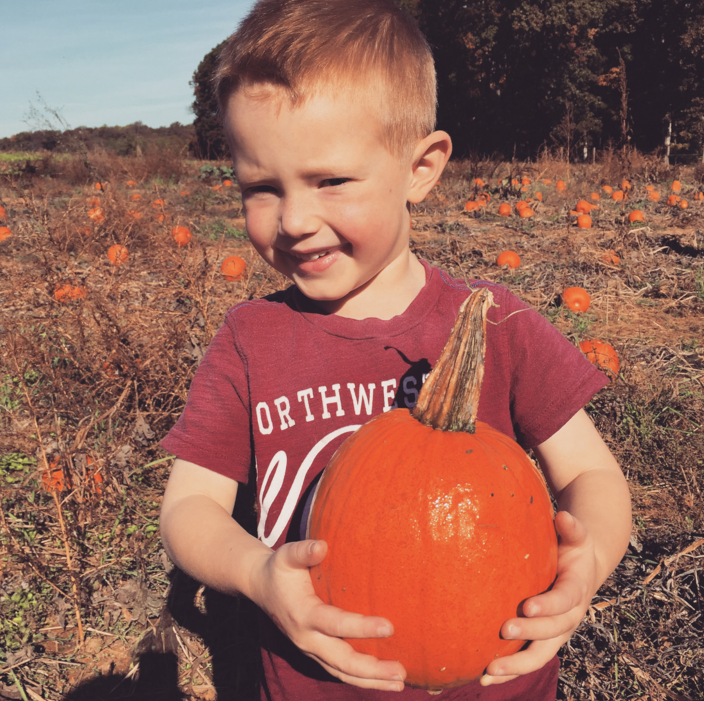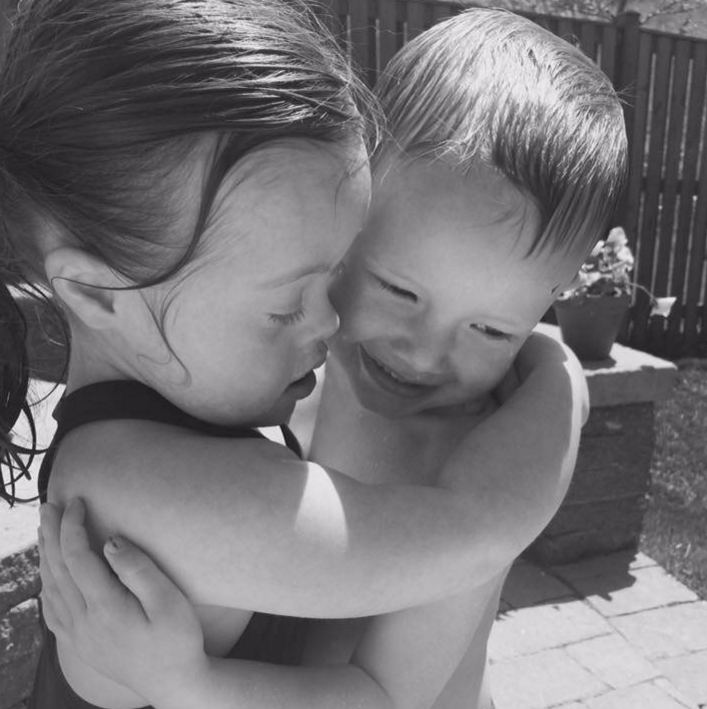Recently, I had the opportunity to take my 3-year-old son Michael on his very first field trip. It was your usual fall preschool excursion, complete with a pumpkin patch, hayride and of course… the boo barn. It was tons of fun for Mommy and her little man. On our way back to the car, we ran into a group from another school. The students at this school have various disabilities. Most are nonverbal and non-mobile, many use wheelchairs or specialty strollers. Like any curious 3-year-old, Michael began asking questions.
“Mommy, why does that boy like me have wheels on his chair like that?”
I immediately responded with, “Well, buddy, sometimes, children and grown-ups have difficulty walking and they need some help to get around so they use wheelchairs.”
“Like when me and Ava get tired of walking and you and Daddy carry us?”
“Exactly, Michael, but it’s all the time.”
“OK, Mommy.”
At the end of this 30-second conversation, the aide pushing the little boy in the wheelchair in front of us turned around and said, “Thank you, buddy, for asking such a great question. It’s always nice to ask questions. We usually don’t get that. We usually just get stares.”
Obviously, that statement went over his 3-year-old head, but it stuck in mine the entire way home.
As a mother of a child with Down syndrome, I’m no stranger to stares. However, most of my stares are followed by, “Look at that beautiful red hair!” or “Well, aren’t you the cutest thing!” It’s not usually what I fear the most. It saddens me though, that some children cannot go on something so simple as a field trip without being stared at. They cannot feel the warm October sunshine on their face or hold their prize pumpkin without being labeled as different. It saddens me that, for whatever reason, some adults cannot embrace the similarities we all have and don’t teach their children that different is beautiful.
Children are naturally curious; they ask questions. So often when they ask a question that’s uncomfortable for the adult, such as “Why is that child in a wheelchair?” or “What is Down syndrome?” they’re hushed or told “We’ll talk about it later.” Sometimes later never comes, and instead of it being a learning experience, children come to fear the unknown and label it as bad. This is where stigmas start.
My daughter Ava was 19 months old when Michael was born. She doesn’t remember a time when he did not exist. When Ava had in-home therapy, Michael was there. When Ava said her first word, he was sitting right beside her. When Michael started to crawl, Ava was butt-scooting next to him. When Michael took his first steps, Ava, not to be out done, took hers as well. To Michael, there’s no difference. He doesn’t see Down syndrome. He sees Ava, his sister. She’s the one who takes his toys and tries to mother him when he falls down. She’s the one who he draws pictures for. She’s the one he chases down the hall in the morning when they should be brushing their teeth. She’s his cuddle buddy. She’s the one who wakes up early on the weekends so she can pick which show she wants to watch first. She’s the one who will play endless games of Spider-Man with him and never once complain. He’s her best friend and biggest cheerleader.
If you ask him if he thinks Ava is different than he is, his response would be, “Yes, Ava is a girl and I am a boy.”
It’s as simple as that.
Follow this journey on Ava’s T21 Foundation.


